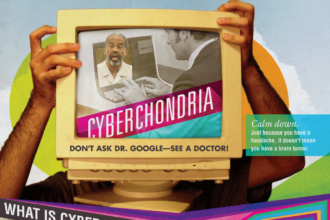Music has its roots in mysticism, magic, and religion–but is there something scientific behind the power of rhythm and pitch? It was Arthur C. Clark, after all, who said “magic is just science that we don’t understand yet.” Music has been making headlines in the last couple of years for its use in medicine, particularly in the realm of the emerging field of music therapy.
Music has its roots in mysticism, magic, and religion–but is there something scientific behind the power of rhythm and pitch? It was Arthur C. Clark, after all, who said “magic is just science that we don’t understand yet.” Music has been making headlines in the last couple of years for its use in medicine, particularly in the realm of the emerging field of music therapy.
Music therapy as a practice gained attention after World War II, being officially recognized by the U.S. Department of War as a useful tool in the recuperation of military service members in Army hospitals. The first detailed mention of this comes from Technical Bulletin 187 in 1945, and music therapy has been used since to help manage traumatic injuries.
As time has gone on, both support and skepticism have cropped up in response to the use of music therapy as a treatment. Recent claims have been made across the spectrum, ranging from music therapy’s ability to improve both physiological and psychological functions that help chronically ill patients breathe better, slow down the parasympathetic nervous system to induce relaxation, and even ease pain and stress after surgery–but can music truly be considered a form of medicine?
Communication Disorders and Melodic Intonation Therapy
One aspect of music therapy includes Melodic Intonation Therapy (MIT) to help those with communication disorders caused by damage to the left hemisphere of the brain, usually the aftermath of stroke or traumatic injury. The therapy uses the musical elements of melody and rhythm to improve expressive language by essentially teaching patients to “sing” what they want to say.
Gabrielle Giffords represents one of the more famous success stories pertaining to this topic. An assassination attempt left Giffords without the ability to speak at first, but after intense MIT sessions she was able to produce short words and phrases. She marked the three year anniversary of the survived assassination attempt by going skydiving, and in an interview with the TODAY Show said “oh, wonderful sky. Gorgeous mountain. Blue skies. I like a lot. A lot of fun. Peaceful, so peaceful.”
NPR has also run stories detailing the success of this type of therapy. The reason that MIT works so well is that the center that controls song and singing and the center that controls speech are in two different hemispheres of the brain, and the theory is that you can “rewire” your brain to utilize your song center for speech. While MIT has only been supported by one randomized control trial and, so far, one-off cases and anecdotal evidence, the results are promising.
A Study in Neurocounseling and Neuroplasticity
For any type of musical therapy, including MIT, to be considered effective and scientifically measurable, the practice must recognize that psychological and behavioral symptoms can be traced back to an underlying physiological and neurological basis. Neurocounseling does recognize this, and bases its treatments on the foundation of neuroplasticity, utilizing brain-based counseling interventions to produce new neurons and neural connections, chemically altering the way that the brain functions.
Effective music therapy seeks to produce measurable results that occur directly in response to the intended stimulus. US News ran a piece that showed Parkinson’s sufferers such as 60-year-old Rande Dave Gedaliah harnessing the power of music to overcome leg spasms, balance problems, and difficulty walking. In the same article, Oliver Sacks, neurologist and professor from Columbia University as well as author of the book Musicophilia, claims that our nervous system is unique among mammals in its automatic tendency to go into foot-tapping mode, and that music triggers networks of neurons to translate the cadence into organized movement.
“We see patients develop something like an auditory timing mechanism,” says Concetta Tomaino, cofounder of the Institute for Music and Neurologic Function in New York City. “Someone who is frozen can immediately release and begin walking. Or if they have balance problems, they can coordinate their steps to synchronize with the music,” improving their gait and stride.
If the external source, the music, is truly stimulating neuroplastic growth in the brain by connecting walking or speech patterns, with the internal “timing” function, then music therapy can revel in its legitimacy as a form of neurocounseling.
Skepticism in the Field
An interesting article popped up in the Atlantic in 2014 titled “The Dangers of Overestimating Music Therapy” by Steve Swayne. In it, the author critiques a popular YouTube video uploaded in late 2011, in which a nursing home patient with named Henry responds to music over headphones.
In the video, you see Henry before he listens to his music. He’s catatonic, unresponsive, and mute. After he puts on his headphones, however, the change is remarkable. His eyes widen, he begins to vocalize and sort of sing, and his movements are characteristic of dancing. To the casual observer, this looks like a clear victory and success. Swayne, on the other hand, sees a different possibility:
“Dementia patients’ inability to consent and their confused responses lead to yet one more reason to tread carefully in this area: the potential for injury,” says Swayne, “emotional injury, not physical injury…. I can easily imagine that, should I outlive my husband, songs that bring me joy today might one day bring me pain, because those songs will make me think of him. The same likely holds true for patients who cannot coherently tell caregivers about their musical triggers.”
Verification via MT-BC
While Swayne isn’t saying that music therapy is “woo woo”, he is saying that we need to be careful at how quickly we adopt practices as science. There is no one-size-fits all approach here–and let’s not forget that there are those claiming to be music therapists who are offering solutions such as “self improvement audio cassettes covering AIDS, cancer, weight loss, stress, birth, children, intimacy, scleroderma, and new age music.” People claiming to be able to cure these ailments with music therapy are selling a product that has no basis in medical science–but that doesn’t stop them from touting it as such.
Still, just because there are a few quacks out there doesn’t mean that you should dismiss music as medicine. Authority in the field is growing as more practitioners receive Music Therapy Board Certification (MT-BC). In the same way that we immediately recognize physician authority via invested training–we know that it takes a really long time and costs a lot to become a doctor–we are also beginning to recognize MT-BCs as authoritative. Compound this with the wealth of evidence amounting in support of music medicine, and it’s hard to ignore this burgeoning field.
While it may not be fully recognize yet, the point is that music is powerful. Even if it can’t be explained now, it’s worth exploring.








